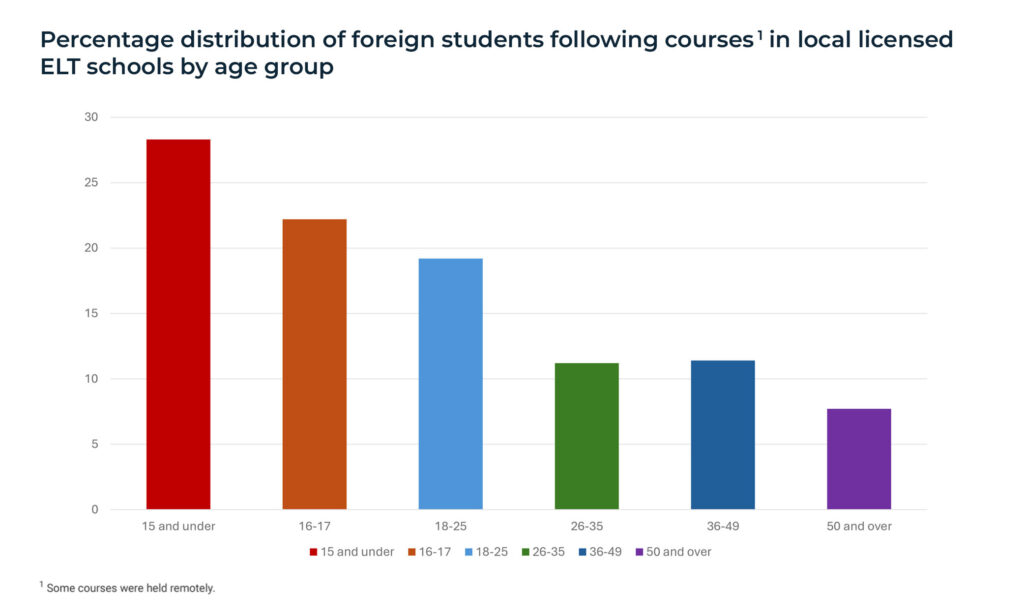Jump to other articles:
- Positive Changes Ahead for Portugal’s Golden Visa Program
- Italian Citizenship Changes 2025: Law 74 Explained
- Portugal Golden Visa Election Results: What They Mean for Investors
- A2 Portuguese Language Requirement for Portuguese Citizenship
- Court of Campobasso Rules in Favor of Italian Citizenship by Descent Applicants
How Your Children Can Learn English in Malta For Free in 2024

On Monday May 20, 2024, the National Statistics Office of Malta (NSO Malta) released details of the number of students enrolling to learn English in Malta. These figures make for interesting reading, as they show that teaching English as a Foreign Language in Malta has become a boom industry. In this article, we explain how your children can study the language in this Mediterranean island group for free.
Number Crunching With NSO Malta
In 2023, overseas students registering on English language courses at licensed English Language Teaching (ELT) schools totalled 78,567. This signifies a rise of 21,892 from 2022. The biggest sector of English language students were 15 and under, representing 28.3% of the visiting ELT population.
4 of the biggest sending non-EU countries were Brazil, Colombia, Japan, and South Korea. Brazilian students grew from 2,088 in 2022 to 4,633 in 2023, while those from Colombia slightly dipped from 3,623 to 3,036 over the same period. Students from Japan increased from 3,029 to 3,407 and those hailing from South Korea dropped minimally from 1,144 to 940.
How Third-Country National Families Can Learn English in Malta For Free
A benefit of both Residency by Investment and Citizenship by Investment programmes is the chance to enrol your children in local state schools. Did you know that English is an official language in Malta? This means your kids will be taught lessons in it and they can improve their proficiency.
Maltese Exceptional Investor Naturalization (MEIN) and the Malta Permanent Residence Programme (MPRP) can help you if you choose to establish a base in Malta. Through either Maltese citizenship or residency, you are investing in your children’s future. Fluency in English will only serve to optimize their career prospects.
If your family resides in Malta thanks to the MPRP, you can claim exemption from paying state tuition fees. However, one parent of the family must be employed in Malta for you to qualify. If your family is deemed eligible, you can renew this exemption on a yearly basis dependent on a parent remaining in Maltese employment.
Our Malta Managing Partner Ryan Darmanin is a product of the Maltese public education system. “As well as having attended Malta state schools,” says Darmanin, “I send my own children to them.”
“Let me reassure foreign investors that whilst there are many excellent international schools in Malta, there’s not the same necessity to enrol your children here in private bilingual establishments as there is, say, in Greece, Portugal, or Spain.”
“If your children have been previously studying English, you don’t have to worry about them losing it as you would if they attended Greek, Portuguese, or Spanish schools,” concludes Darmanin.

Taking Your Next Steps to Maltese Residency or Citizenship
Whether you choose to apply for MEIN or MPRP is a big decision. It’s one you should take after talking with an investment migration expert with a Maltese office such as Latitude Group. So, don’t delay and contact us today.
 Back to News
Back to News